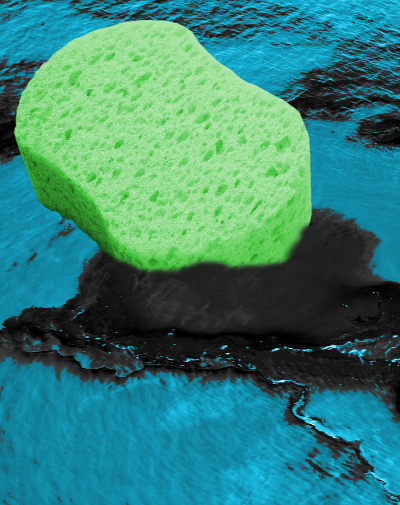Oil-eating super-sponge edging closer
 Australian researchers are close to commercial trials of an exciting new material that can soak up oil spills.
Australian researchers are close to commercial trials of an exciting new material that can soak up oil spills.
The breakthrough material absorbs oil like a sponge and is the result of support from the Australian Research Council and two years of refinement in local labs.
“We are so excited to have finally got to this stage after two years of trying to work out how to turn what we knew was a good material into something that could be practically used,” said Deakin University Professor Ying Chen, lead author on a paper outlining the developments in the journal Nature Communications.
“In 2013 we developed the first stage of the material, but it was simply a powder. This powder had absorption capabilities, but you cannot simply throw powder onto oil – you need to be able to bind that powder into a sponge so that we can soak the oil up, and also separate it from water.”
Co-author of the paper, scientist Dr Weiwei Lei - an Australian Research Council Discovery Early Career Research Awardee - says turning the powder into a sponge was a hefty challenge.
“But we have finally done it by developing a new production technique,” Dr Lei said.
“The ground-breaking material is called a boron nitride nanosheet, which is made up of flakes which are just several nanometres [one billionth of a metre] in thickness with tiny holes which can increase its surface area per gram to effectively the size of 5.5 tennis courts.”
The research team started with boron nitride powder known as “white graphite” and broke it into atomically-thin sheets, which were then re-compiled to make a sponge.
“The pores in the nanosheets provide the surface area to absorb oils and organic solvents up to 33 times its own weight,” Dr Lei said.
Boron nitride nanosheets do not burn, can withstand flame, and be used in flexible and transparent electrical and heat insulation, as well as many other applications.
The mechanochemical technique developed to make the sponges makes it possible to produce high-concentration stable aqueous colloidal solutions of boron nitride sheets, which can then be transformed into the ultralight porous aerogels and membranes for oil clean-up.
The team is now looking for industry partners to test the material at scale.







 Print
Print